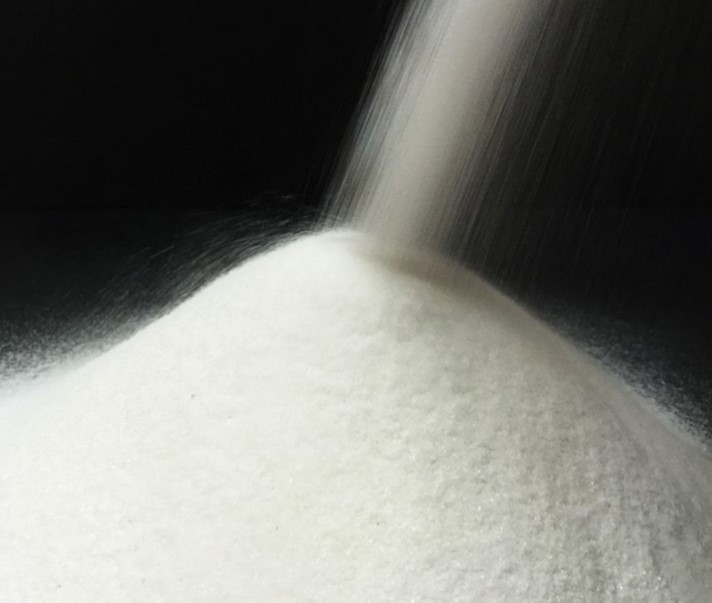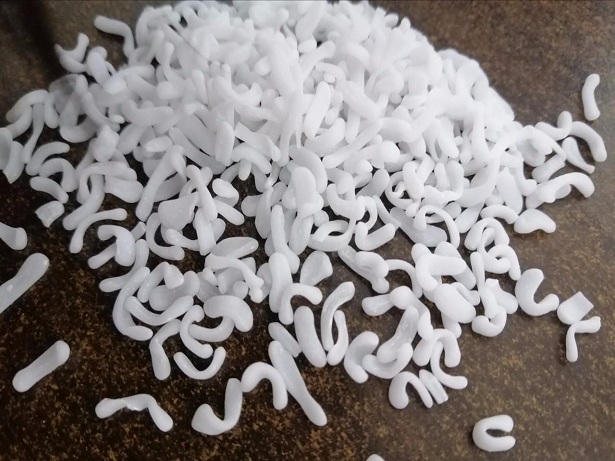What are the benefits of plastic pellets for the plastic industry?
When used as a plastic additive, in addition to replacing a part of raw materials so that manufacturers can reduce production costs to the maximum, taical beads also work to help plastic products increase strength as well as hardness. In addition, the aesthetics of the final product is greatly enhanced as CaCO3 in the taical helps to improve and correct the gloss and opacity of the surface. At the same time, adding CaCO3 to plastic products also increases the capacity in their surface.

What are the outstanding properties of plastic fillers (Taical)?
Taical seeds have natural CaCO3 ingredients
Taical seeds have the main ingredient CaCO3 – a compound available in nature. They are found both in geological deposits and in the biology of living organisms. Calcium carbonate is an indispensable ingredient in eggshells and shells of marine organisms (oyster shells, sea shells, snail shells and even corals). However, the main resource supplying CaCO3 comes from limestone quarries. In nature, CaCO3 exists in three main crystalline allotropes: calcite, aragonite and vaterite. However, due to the suitability of calcite's crystal structure, it is the most commonly used type because it has the most commercial applications.

The physical properties that taical particles have are due to the properties of CaCO3
As a high content ingredient in taical granules, pure calcium carbonate is solid (usually in the form of a fine powder), white and odorless with a melting point ranging from 800 to 1400°C. Their molecular mass is 100.087 g/mol.
Chemical properties of taical particles affected by CaCO3
The reason why manufacturers can widely use taical beads in plastic production is because the chemical properties of both CaCO3 and plastic are not changed when mixed with many different types of resins and additives. In addition, calcium carbonate is also insoluble in water, stable at room temperature and reacts only with some strong acids (such as HCl), moderate (such as sulfamic) or weak acids (acetic, citric, phosphoric, etc.). lactic, sorbic). Thanks to these properties, plastic products made from taical beads will be applied in a variety of fields, including those that focus on user safety such as the food and beverage industry. drink.
Taical beads are made from 2 common types of CaCO3?
In the filler masterbatch industry, they are used in two forms: coated CaCO3 and uncoated CaCO3. Coated CaCO3 is mainly extracted from limestone or white marble quarries with high purity, only the uncoated CaCO3 differs in that they are coated with fatty acid (stearic acid) and binder (Titanate). Coupling Agent) onto the surface.
In general, the physical and chemical properties of these two types of CaCO3 are not significantly different. Most of the physical properties like whiteness, brightness, moisture content, weight, pH, etc. no change at all. Only with oil absorption, the uncoated CaCO3 is much better (30.08g/100g compared to the coated CaCO3 which is only 18.71g/100g). Below are the indicators indicating the physical properties of CaCO3:
• Whiteness: as low as 98%
• Brightness: as low as 96%
• Humidity: the highest is 0.2%
• Gravity: 2.7g/cm3
• Specific surface area: 4.23 – 4.72m2/g
In addition to their chemical composition, apart from the presence of stearic acid, there is no difference:
• Calcium carbonate (CaCO3): 98.5%
• Silicon Oxide (SiO2): 03%
• Magnesium Oxide (MgO): 0.02%
• Aluminum Oxide (Al2O3): 0.02%
• Iron Oxide (Fe2O3): 0.02%
The application of taical beads in the plastic industry
In production, taical beads are mixed with various types of plastic, from hard plastic, flexible plastic to thermoplastic. The applications of taical beads are numerous. The applications of which can be mentioned through the application of injection molding with this masterbatch are food wrapping film used in supermarkets, shopping bags, garbage bags, wrapping films used in agriculture, etc.
Our Company has experiences in manufaturing and supplying types of Calcium Carbonate, limestone
For any information, please contact:
NO.18 SON HA MINERALS COMPANY
Factory: Mam Xoi Mountain, Thanh Son Commune, Kim Bang District, Ha Nam Province, Viet nam
Telephone: +84 936 212 598
Hotline: +84 986 358 011 (Whatsapp / Wechat) - Mr. Thomas
Email: export2@shcgroup.vn
Skype: export2@shcgroup.vn




